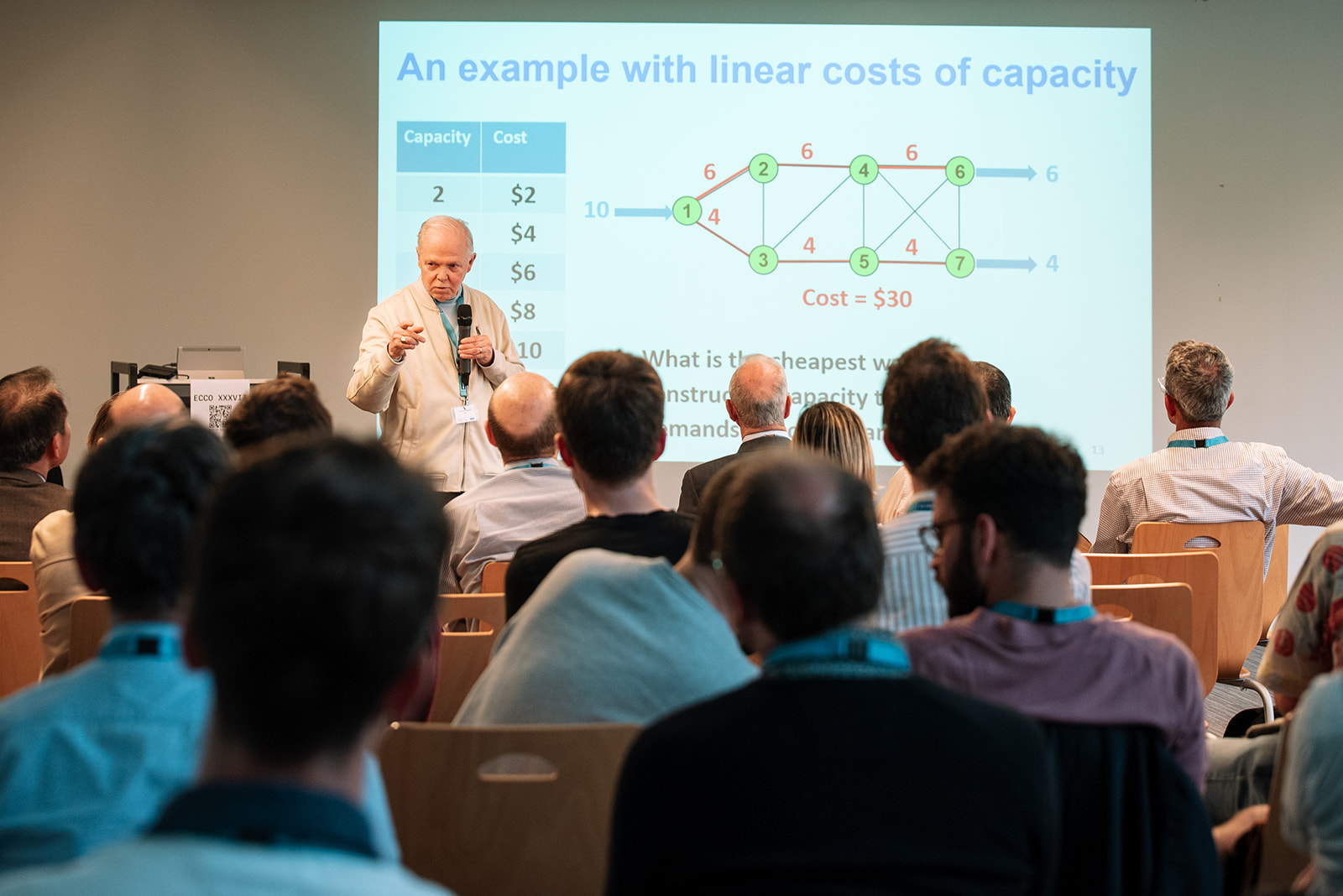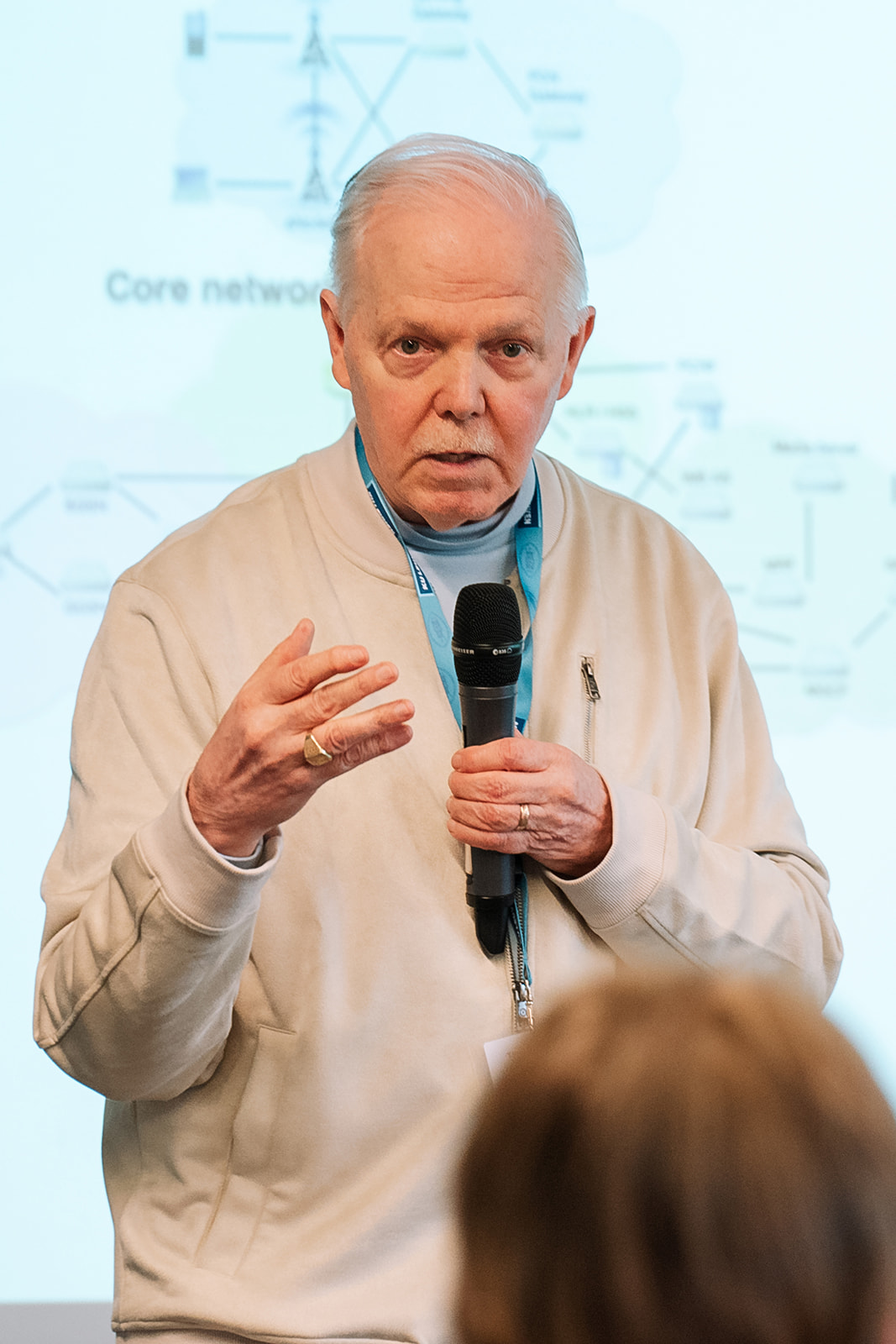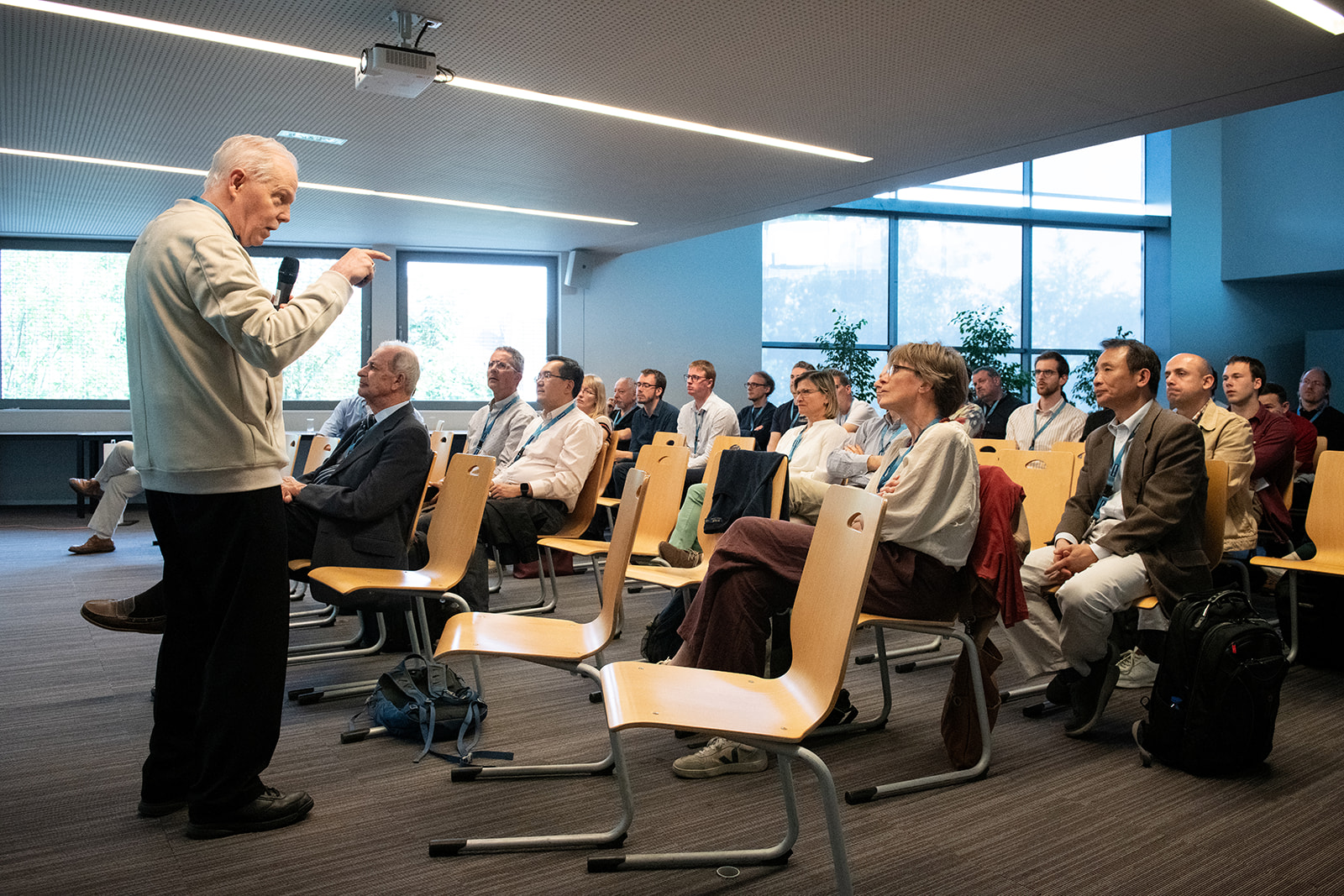The 37th Conference of the European Chapter on Combinatorial Optimization will be held in Ghent
(Belgium),
from 6 until 8 June 2024.
The conference will be hosted at KU Leuven's campus in
Ghent, at a 10-minute walk from Ghent's
historical city center.
ECCO (European Chapter on Combinatorial Optimization) is a Working
Group of EURO (Association of European Operational Research Societies)
that provides an excellent opportunity to discuss recent and important issues in Combinatorial Optimization and
its applications.

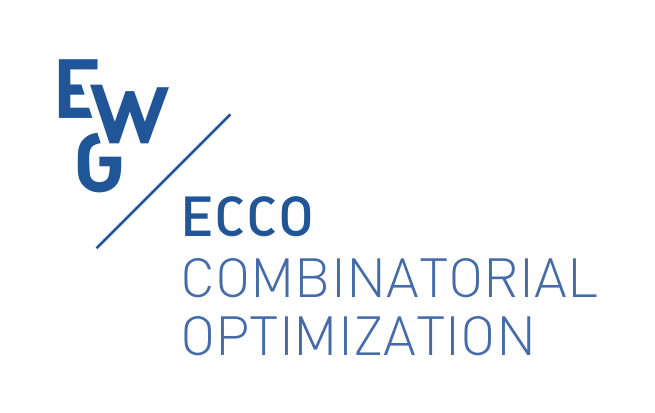


Aims and Objectives
The ECCO annual meetings aim to bring together researchers in the field of Combinatorial Optimization to present
their work, share experiences, and discuss recent advances in theory and applications. The primary objectives are:
-
exchanging results and experiences in solving real-world combinatorial optimization problems
-
reporting on development and implementation of appropriate models and efficient solution methods for
combinatorial optimization problems
-
establishing networking contacts between individuals and research groups working on related topics
-
promoting the work on combinatorial optimization (theory and applications) to the broader scientific community
-
identifying challenging research problems for the field, as well as promising research outlets (both in theory
and applications)
-
promoting interactions with researchers in other related fields
Important dates
| Deadline for Abstract Submission |
April 5th, 2024 April 18th, 2024 |
| Notification of Acceptance |
April 19th, 2024 April 22th, 2024 |
| Deadline for Early Registration |
April 30th, 2024 May 10th, 2024 |
| Deadline for Late Registration |
May 20th, 2024 May 25th, 2024 |
| ECCO Conference 2024 |
June 6th – 8th, 2024 |
Plenary Speakers

The landscape of viral marketing is evolving rapidly, demanding innovative approaches to
maximize influence and cost-effectiveness in billion-scale networks. This keynote explores cutting-edge
advancements in viral marketing optimization, transcending traditional combinatorial approaches to
learning-based strategies. Our journey begins with a traditional (1-1/e)-approximation algorithm with
accelerated sampling frameworks, further demonstrating an almost exact solution for this NP-hard problem.
Shifting gears to heterogeneous multiplex networks, we introduce combinatorial algorithms that effectively
navigate complex overlapping user dynamics, capturing the influences between and within multiple networks.
Embracing machine learning, we unveil a transformative framework designed to overcome fundamental
obstacles in traditional non-learning-based approaches. Finally, our exploration concludes with
MIM-Reasoner, which exploits the reinforcement learning with probabilistic graphical models to address the
viral marketing across various platforms.

Network design is a broad topic that has many applications and poses many challenges for the field of
combinatorial optimization. The basic issue is to meet the delivery of goods ( e.g., people, freight,
messages) from sources to destinations by constructing a network of physical links or routes that incur a
fixed cost for installation. The links or routes might be capacitated and the network might have special
structure. In this presentation I will discuss some combinatorial and integer programming issues and
results, with an emphasis on transportation and telecommunications networks.
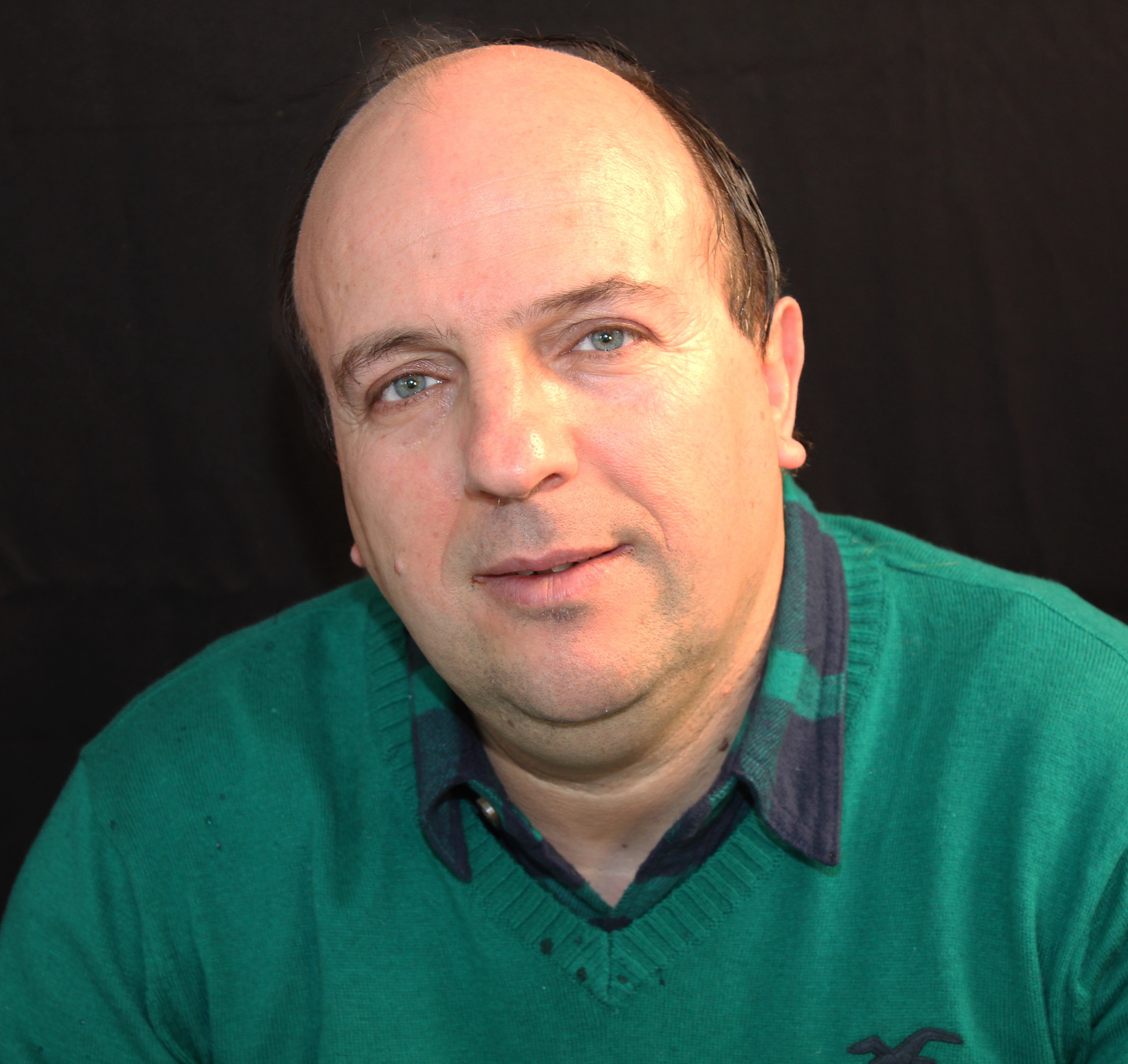
In recent years, research in metaheuristic optimization approaches in the automatic design and configuration of
deep neural networks has become increasingly popular. Although various approaches have been proposed, there is a
lack of a comprehensive survey and taxonomy on this hot research topic. In this talk, we propose a unified way
to describe the various metaheuristics that focus on common and important search components of optimization
algorithms: representation, objective function, constraints, initial solution(s), and variation operators. In
addition to large-scale search space, the problem is characterized by its variable mixed design space, it is very
expensive, and it has multiple blackbox objective functions. Hence, this unified methodology has been extended to
advanced optimization approaches, such as surrogate-based, multi-objective, and parallel optimization.
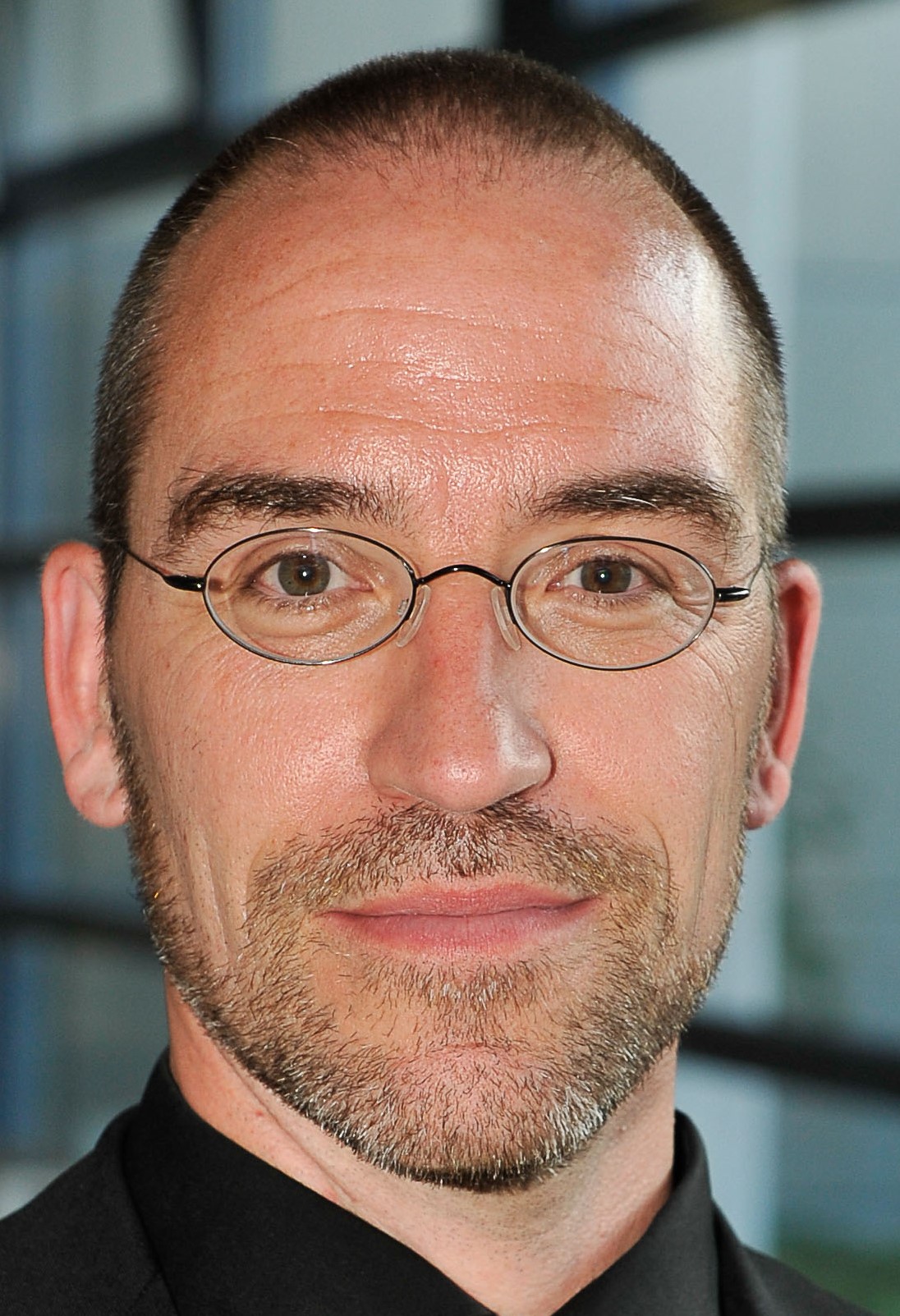
In most vehicle routing and crew scheduling problems solved by column generation-based methods, the subproblem is a variant of the shortest path problem with resource constraints (SPPRC). The SPPRC has contributed to the success of these methods in at least two ways: First, its resource constraints provide a flexible tool for modeling complex cost structures as well as a wide variety of rules that define the feasibility of a route or a schedule. Second, efficient algorithms are available for at least for some important variants of the SPPRC. The talk presents selected examples of modeling with SPPRC and an overview of state-of-the-art methods for solving SPPRC.
Supported by FWO Scientific Research Community OR4Logistics (grant number W001321N).
Abstract Submissions
Abstract submission is CLOSED
For each submitted paper,
ONE unique registration must be submitted as well (e.g., for two submitted
papers, two separate registrations must be submitted).
Registration
| Registration type |
Cost (€) |
| Regular Early Registration until: May 10th, 2024 |
220 |
| Regular Late Registration until: May 25th, 2024 |
275 |
| Student Early Registration until: May 10th, 2024 |
155 |
| Student Late Registration until: May 25th, 2024 |
220 |
| Accompanying person registration (Conference dinner & Social event) until: May
25th, 2024 |
120 |
Registrations are CLOSED.
After submitting the form, you will receive two emails: one with the payment details and another with the registration details. If you do not receive these emails, please check your spam folder or contact [email protected].
Transfer costs (e.g., credit card fees, etc.) are not included in the registration fee and are paid by
the delegate.
Special Student Rate: 20 master/PhD students will be supported and can apply for
the Special Student Rate. To qualify for the Special Student Rate, students need to provide official evidence
of their studentship from their institution on a stamped letterhead.
Student applications with their university certificates should be submitted by email by April 18th. The
announcement of the acceptance/rejection of the applications will be made by April 22th.
The category (early/late) of the registration fees are determined by the date the payment is made, not
the date of registration.
Cancellation policy: The registration of participation is binding. Cancellation of registration must be
submitted
in writing via email. Cancellations received before May 25th 2024 are subject to a 20% administrative
fee. No refunds will be paid after May 25th 2024.
Scientific & Social Programs
The Conference will take place from
Thursday June 6th to Saturday June 8th 2024.
Programme of Talks
-
The book of abstracts is now available in here, alternatively the programme of talks can be viewed as mobile-friendly website.
-
The Registration Desk will be open on Thursday June 6th at 8:30am.
Social Events
-
Thursday June 6th: Enjoy authentic Belgian fries paired with locally brewed beer.
-
Friday June 7th: Join us for the conference dinner at Pakhuis.
-
Saturday June 8th: Explore Ghent's rich history with a guided tour of the city center.
Publications
A special issue of the Journal of Combinatorial Optimization will be devoted to work presented at the conference. All articles will be refereed according to the high standards of the journal.
Details of the process can be found here.
Venue
The conference will be hosted at KU Leuven-Ghent, Gebroeders De Smetstraat 1, Ghent
Travel & Accommodation
Travel
-
Conference participants who require a visa to enter Belgium are kindly asked to contact the Local Organizing Commitee Chair to solicit an official letter.
-
Information about how to reach Ghent and the campus can be found on KU Leuven's website.
Accommodation
We recommend the following hotels for conference participants:
More accommodation options are available via
Tripadvisor,
Hostelworld or
Booking.
Committees
Program committee
Organizing committee
- Greet Vanden Berghe (chair), KU Leuven
- Tony Wauters (co-chair), KU Leuven
- Jeroen Gardeyn, KU Leuven
- Pieter Smet, KU Leuven
- Robin Tourlamain, KU Leuven
Proceedings
TO BE ANNOUNCED











